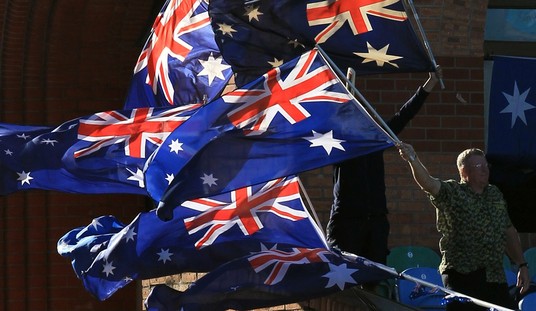The Times of India reports that US policy makers are having second thoughts about whether Pakistan is in the main, friend and not foe.
The United States is dusting off a long-discarded proposal to declare Pakistan a state sponsor of terrorism. But with the Bush administration now in its final six weeks in office, a decision in this regard is being left to the incoming Obama government, sources said, contingent on corrective actions taken in the meantime by Islamabad to the satisfaction of India, US and other countries affected by Pakistan’s toxic export of death. …
“I think this event looks a lot more like a classical Special Forces or commando-style raid than it does like any terrorist attack we’ve seen before,” David Kilcullen, a counter insurgency military analyst who served as an advisor to Gen. Davis Petraeus tells Fareed Zakaria in the upcoming edition of his program GPS, articulating what US officials are saying in private. “No al-Qaida-linked terrorist group and certainly never Lashkar-e-Taiba has mounted a maritime raid of this type or complexity.” …
A few months later a US commander, Lieutenant Colonel Chris Nash, who worked with the Afghan police, made a widely discussed slide presentation on his return to Washington, saying “ISI involved in direct support to many enemy operations … classification prevents further discussion of this point.” The support included “training, funding, [and] logistics,” he added.
But the most damning, and most recent, piece of evidence came after the bombing of the Indian Embassy in Kabul when US intercepted communications between Pakistani intelligence officers and militants who carried out the attack. The messages, US officials said later, indicated that the ISI officers involved in the bombings were not “renegades,” or “stateless actors,” and “their actions might have been authorized by superiors.”
Washington now believes that is also the case with Mumbai, which is why, notwithstanding a soft public stance, Secretary of State Condoleezza Rice has conveyed to President Zardari what her predecessor Baker told Nawaz Sharif: Pakistan is on track to being declared a state sponsor of terrorism if it does not act.
It was because of this long history of Pakistan’s corrosive terrorist record that an outraged Rice dismissed Islamabad’s request for evidence this time, saying, there is a “lot of information about what happened here, a lot of information… And so this isn’t an issue of sharing evidence.”
Whatever the American attitude towards the Government of Pakistan will be, the US already openly believes that certain former (thanks for spotting the difference, readers) Pakistani officials are in fact, terrorists. Bill Roggio reports that “the US wants the United Nations Security Council to designate several senior former officers of Pakistan’s Inter-Service Intelligence agency as international terrorists.”
Included on the list of former Pakistani intelligence officers being submitted to the UNSC are Hamid Gul, Javid Nasir, and Zahirul Islam Abbasi, as well as Aslam Beg, a senior Army officer, the intelligence official said.
The placement of the former Pakistani officers on the United Nations list would open their international accounts up to scrutiny and eventual seizure, the US official said. “We could do some major damage” to the officers’ “slush funds” in international bank accounts. The US will also seek to place the officers on INTERPOL’s wanted list.
News of the US move broke after Gul spoke to the Pakistani press about being added to the list. Gul “was informed of this by a highly responsible person, who had personally seen the written US request,” The News reported.
The US intelligence official expressed concern that Gul still has access to such sensitive information. Gul’s knowledge of the effort “is indicative that he still has friends in very high places.”
Translation: parts of the Pakistani government are rotten and nobody is sure how far the rot goes. However the fact remains that the US will need allies — individual allies at least — within Pakistan if it is to have any hope of combating al-Qaeda. This implies that the process of “engagement” with Pakistan not only has an open, diplomatic dimension — the world of ambassadors, conferences, treaties and international law — but probably involves a twilight struggle between our guys and their guys within Pakistani political and military circles. Success in such struggles often revolves around what balance has been struck between the two worlds and what deals have been made as much as how good and daring the men in the field are. The second greatest fear of field operatives is not who they may run into in the bazaar, but who their report may run into in back in the capital.
The question of who you can trust is an ancient one. Tennyson had some fine words for trust, but the flowers he had in mind probably did not run to wreaths.
In Love, if Love be Love, if Love be ours,
Faith and unfaith can ne’er be equal powers:
Unfaith in aught is want of faith in all.It is the little rift within the lute,
That by and by will make the music mute,
And ever widening slowly silence all.The little rift within the lover’s lute,
Or little pitted speck in garner’d fruit,
That rotting inward slowly moulders all.It is not worth the keeping: let it go:
But shall it? answer, darling, answer, no.
And trust me not at all or all in all.









Join the conversation as a VIP Member